Upcoming Writing Workshop
Like many writers, I have a day job in addition to writing books. Happily, mine happens to have a lot of writing synergy: I’m the editor of Nimrod International Journal at The University of Tulsa. Nimrod publishes two issues of short fiction and poetry a year and has been around since 1956. (The journal, not me. I’ve only been with it since 1999. Which is still nearly a third of my life. Which is a little scary.) Aside from publishing the journal, we do several writing/reading related programs throughout the year. The biggest one is our Conference for Readers and Writers, and it’s coming up on October 25th.
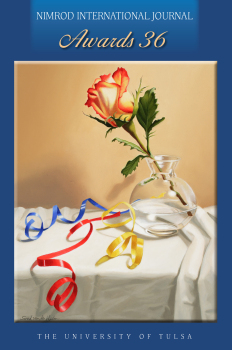
Fall/Winter 2014 issue
The Conference is a day-long writing workshop, and it’s really fun. Especially since we now bring in fantasy and science fiction authors in addition to our poets and literary fiction authors. (Basically, I go through my shelves each year and decide which author I love that I would like to meet. Being the boss has some perks.) I’ve had a fantastic time getting to meet and learn from authors such as Peter S. Beagle, Kelly Link, Patricia C. Wrede, Sharon Shinn, Rosemary Clement-Moore, and Gail Carriger. Seriously, getting to hang out with Peter Beagle was amazing. And I only teared up a little when he signed my copy of The Last Unicorn.
This year, I’m really excited because Malinda Lo will be joining us. I discovered Malinda through her first book, Ash, which is a retelling of Cinderella with a lesbian romance. It reminded me of Robin McKinley—a high bit of praise from me—and yet was also all its own. Her three books since (Huntress, Adaptation, and Inheritance) have also been awesome, and she writes some of the most interesting and thought-provoking blog posts in YA lit. She’s also the co-founder of Diversity in YA with author Cindy Pon, and if you don’t follow them on Tumblr and elsewhere, go do it now. I’m stoked to meet her, and I’m totally planning on sneaking into her class, which is going to be on the Five Foundations of Fantasy Worldbuilding, for as long as I can. (Which is sometimes not that long, because I’m the one who deals with All The Things at the conference. But still: EXCITED!!!!)
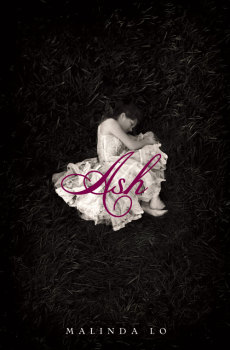
The conference is open to the public, so if you’re in the area of Tulsa, OK, you should attend. (And by “the area,” I mean any drivable distance. We have folks come in from several states, and they assure me the drive is worth it.) It’s a busy day, but a relaxed one, and a warm and welcoming environment. We have writers of all age levels and experience levels. I’m especially proud of this, because it makes it a good place for young writers who haven’t ventured out to conferences or conventions before to get their publishing world feet wet.
We start out the day with two panel discussions. I moderate one—a Q&A session where the audience gets to ask our panelists any questions they have about publishing or editing. This will be the third or fourth year I’ve moderated it (I was super nervous the first year, but I think I’ve hit my stride by now). Then we’ll have group classes about writing fiction, poetry, memoir, and performance of literature, in addition to YA fantasy. We’ll also have a class on paths to publication, including agents, small presses, and self-publishing. And you can submit your work and sign up to have a critique session with one of the editors of the journal. Plus readings and book signings and lunch and snacks and getting to hang out with awesome authors. I ask you: How can you go wrong?
The conference price is $50, but we also have scholarships available that lower the cost to $10. Anyone can apply for a scholarship, though we especially recommend them for students and teachers.
So that’s what I’ll be doing on October 25th. (And it’s why I’ve been kind of quiet on my social media the last month or so—organizing a conference like this is tiring!) I hope I’ll see you there!
Leisurely YA Reads
I’ve been thinking lately about the differences between YA books and adult books. (Or, I should say, some of the differences between some YA books and some adult books, because making blanket statements about all types of books in a particular genre doesn’t lead anywhere good.) In any case, I just finished rereading Robin Hobb’s Royal Assassin, the second book in her Farseer trilogy, which is the first of two finished trilogies and one just-begun trilogy about the same characters. They’re great books, ones I’ve loved for years; I’m rereading them right now because the first book in the new trilogy just came out and I’m one of those people who rereads all the previously books whenever the new book in a series comes out. (Yes, I reread the Harry Potter books seven times. I fear the next Game of Thrones book coming out.)
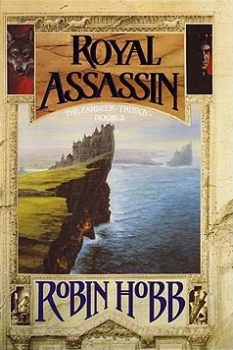
As I was reading Royal Assassin, thought, I started noticing the vast difference in pacing between it and the book I had read previous to it: Blood of My Blood, Barry Lyga’s just released ending to the I Hunt Killers trilogy (also an awesome set of books, but don’t read them while you’re home alone if you’re twitchy like me, as they are about serial killers). Blood of My Blood is a really fast paced novel; I read the whole thing in less than 48 hours, because it just keeps pulling you along, with the events happening over the course of only a few days. Royal Assassin, on the other hand, is much more leisurely paced; it takes a lot longer for the character and plot threads to unfold, the tension to ratchet up, etc.
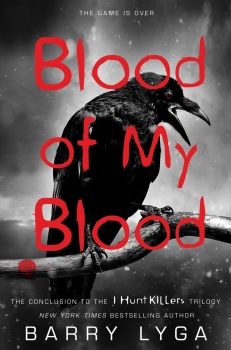
Going from Blood of my Blood to Royal Assassin was actually a little jarring as a reader—I had to mentally slow myself down for Royal Assassin. And while Blood of My Blood is on the fast end of YA to begin with, it got me trying to think of YA books that are on the other side of pacing, books with longer fuses, as it were. One of the reasons I’m interested in it is that I think my own writing style tends to be a little slower paced than the average YA novel. I don’t mind that—it’s usually what my particular style of books need. (Though after my first draft I often have to do a rewrite with picking up the pace in mind, because my first drafts tend to come out a bit slower than necessary.)
What’s the advantage of slower pacing? It depends, but I enjoy the sometimes deeper sense of place you often find in more deliberately paced books, the ability to really sink into a fantasy world and its culture and myths. Often a deliberate pace means the book is going to take place over a longer internal time span—months or years rather than days or weeks—again, something that I enjoy and that I tend to gravitate toward in my own writing (though I would love to write a book that takes place over 24 or 48 hours just to see if I could do it well.) I also like books that, as my husband says, are Animal Crossing books (in reference to the Nintendo game). Books where it’s not life or death every moment, but that take time to show the characters just living life—going to the post office, having tea, picking out Christmas presents.
Am I saying that one type of book is better than the other? Not at all. Just like sometimes you want soda and sometimes you want tea, we need different book fixes for different moods. But because so many YA books are very quickly paced, I think it’s nice to also highlight the other side of YA.
So here are a few YA books for when you feel like something that takes its time a little more than most:
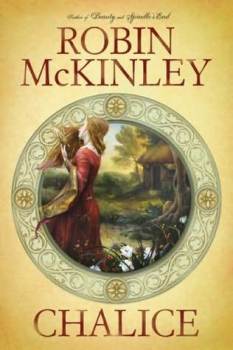
Chalice, The Hero and the Crown, and Shadows by Robin McKinley (actually, pretty much any book by Robin McKinley)

Ash by Malinda Lo
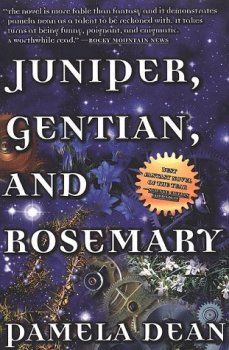
Juniper, Gentian and Rosemary by Pamela Dean (on the border of YA and not—I’ve seen them shelved both ways, as I have with several McKinley books)
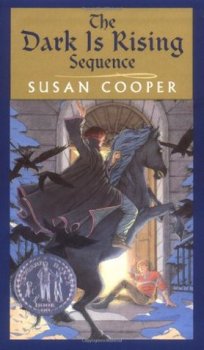
The Dark Is Rising series by Susan Cooper
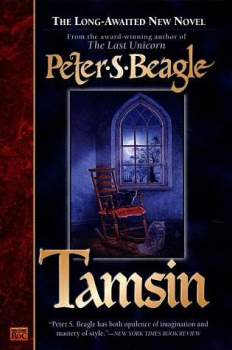
Tamsin by Peter S. Beagle
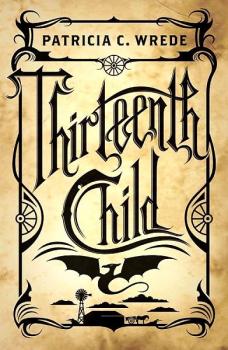
Thirteen Child and subsequent books by Patricia C. Wrede
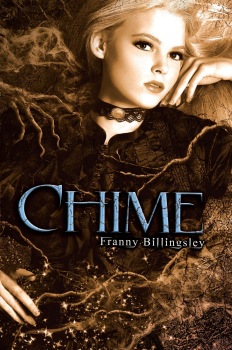
Chime by Franny Billingsley
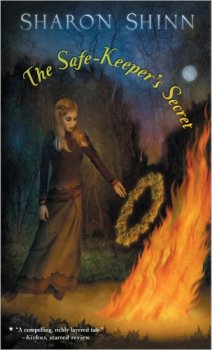
The Safe-Keeper’s Secret and subsequent books by Sharon Shinn

Wise Child and Juniper by Monica Furlong

